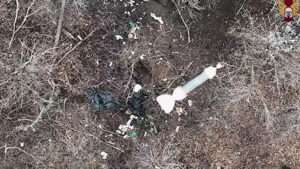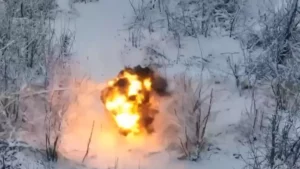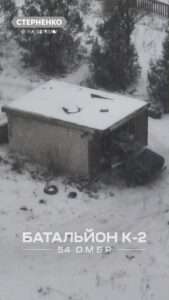These images show how a Ukrainian air recon unit worked with their colleagues in artillery to destroy a Russian ammunition truck near Bakhmut in a huge explosion.
The footage shows how the Ukrainian drone spotted the Russian ammunition truck driving along what appears to be a dirt road in a rural setting.
It can suddenly be seen being hit by ordnance, causing a large explosion as the vehicle comes to a stop as smoke rises into the air.
The images then cut to the vehicle on fire as further ordinance hits the area before it suddenly explodes in a giant fireball.
The images were obtained from the National Guard of Ukraine on Sunday, 19th March, along with a statement saying: “Servicemen of the 3rd Operational Brigade ‘Spartan’ of the National Guard of Ukraine, together with the 44th Separate Artillery Brigade of the Armed Forces of Ukraine, discovered and destroyed a truck belonging to the occupiers, which was delivering ammunition in the direction of Bakhmut.
“With the help of a UAV, the brigade’s aerial reconnaissance recorded the movement of a military truck that was delivering ammunition to the occupiers.
“Control and correction of fire was carried out by guardsmen of the 3rd Operational Brigade, fire damage was inflicted by gunners of the Armed Forces of Ukraine. The enemy continues to shell populated areas and positions of the Ukrainian military, but the National Guard complicates the logistics of delivering ammunition to the occupying forces at the front.”
Russia invaded Ukraine on 24th February 2022 in what the Kremlin is still calling a “special military operation”. Today marks the 390th day of the full-scale war.
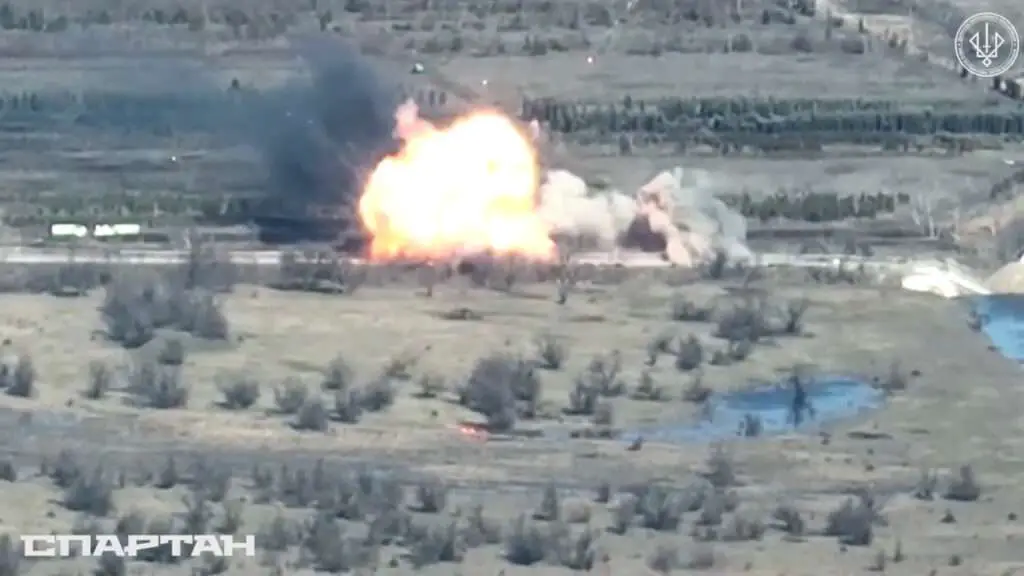
The General Staff of the Armed Forces of Ukraine reported that between 24th February 2022 and 20th March 2023, Russia had lost about 165,610 personnel, 3,537 tanks, 6,869 armoured combat vehicles, 2,577 artillery units, 507 multiple launch rocket systems, 270 air defence systems, 305 warplanes, 290 helicopters, 2,160 drones, 907 cruise missiles, 18 warships, 5,416 motor vehicles and fuel tankers, and 265 units of special equipment.
Russia has claimed that its casualties have been much lower but provides infrequent updates on its latest figures.
Ukraine’s President Volodymyr Zelensky has said that an arrest warrant issued by the International Criminal Court (ICC) in The Hague against Russian President Vladimir Putin is a “turning point” in the ongoing conflict.
He said that the warrant signified a “truly significant international legal result for Ukraine, for justice […].”
Zelensky added that it represents “the moment after which it becomes undeniable that the end of this aggression for Russia will be the full range of its responsibility.”
Ministers of justice from over 40 countries are set to meet in London to hold discussions about boosting support for the ICC regarding its investigations into Russian war crimes in Ukraine.
Serbia’s President Aleksandar Vucic, who has previously stated he has a close personal relationship with Putin, has criticised the international arrest warrant against him, saying that it will prolong the conflict.
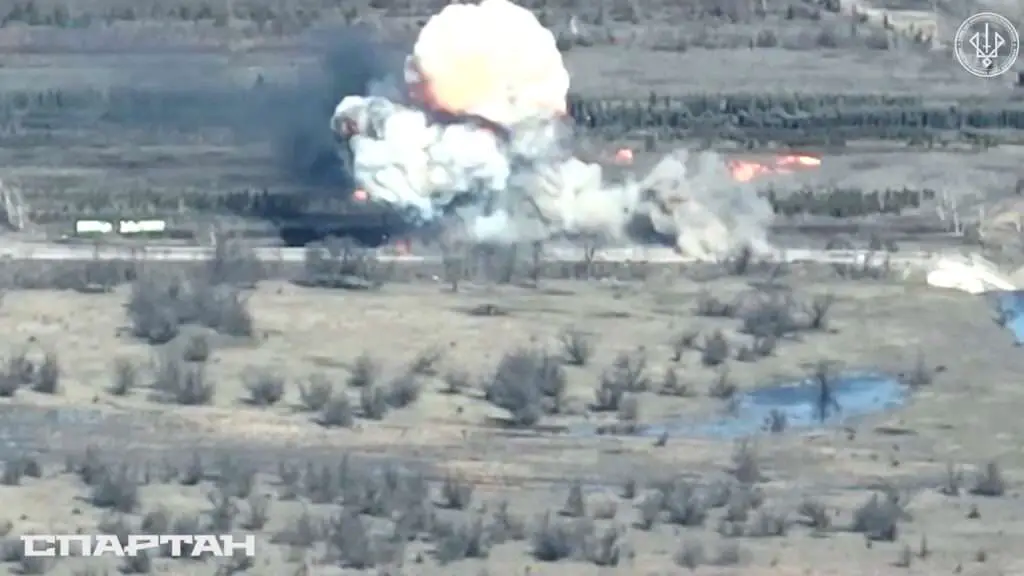
He said: “I think issuing an arrest warrant for Putin, not to go into legal matters, will have bad political consequences and it says that there is a great reluctance to talk about peace [and] about truce.”
Chinese President Xi Jinping is set to begin a state visit to Russia, reportedly seeking to present his country as a global peacemaker and strengthen ties with Russia.
Putin has reportedly visited a command post located in the southern Russian city of Rostov-on-Don, according to the Russian state-owned news agency TASS.
The move comes after Putin visited Russian-occupied Mariupol and Crimea.
The Ministry of Defence of Ukraine has said that Putin visited Mariupol “under the cover of night” to avoid showing the Russian people the scale of the destruction in the city.
The Ukrainian MoD said that “darkness allows them to highlight what he wants to show, and keeps […] It’s few surviving inhabitants away from prying eyes.”
There is reportedly a shortage of explosives in Europe including gunpowder, plastic explosives and TNT, which could mean that Europe’s defence industry is hampered when it comes to meeting orders from the European Union to supply Ukraine with ammunition.

